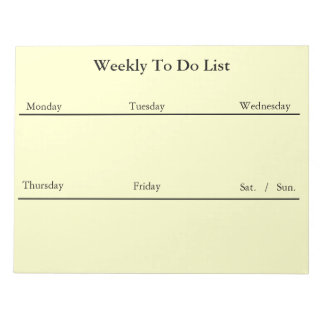Issues between brothers and sisters often seem to come to a head when a parent suddenly needs care. While siblings who have always had a healthy relationship generally find ways to work through their disagreements, many who never truly got along can find themselves frustrated, hurt and even completely estranged from one another in the end. In either scenario, objective, professional advice can be helpful for those families who are working towards conflict resolution at a time when everyone
be cooperating.
Christine M. Valentin, a Licensed Clinical Social worker in New York and New Jersey, provided AgingCare.com with some helpful suggestions for putting an end to family feuds. Valentin owns a private counseling practice where she works with adults who are experiencing anxiety and depression related to work, relationships and family. She also specializes in counseling people who are caring for loved ones with certain medical conditions like multiple sclerosis (MS) and Alzheimer's disease (AD). Prior to opening her practice, she worked with older adults and family caregivers for many years at non-profit organizations like the Jewish Association Serving the Aging, Mount Sinai's Caregiving Program, and the Alzheimer’s Foundation of America.
CBB: Why does dysfunction seem to be so common in caregiving families?
CV: While I'm not aware of statistics that actually confirm it is widespread, I would say that some form of "family dysfunction" during the caregiving journey is almost inevitable. Caring for a loved one is a complex task that often entails making myriad decisions while also juggling financial constraints, paperwork and planning, and emotional responses. Caring for a parent in itself can be physically and emotionally demanding, and adding numerous opinions and personalities to the mix can multiply the complexities involved. This is particularly true if everyone is not on the same page regarding the care they think their parent(s) should receive.
CBB: Do you think caregiving is usually an instigating factor, or does this situation simply exacerbate a familial rift that was already present?
CV: In my experience, a family rift, dislike for one another's personality, or disapproval of each other's lifestyle choices is generally present before the caregiving duties arise. The experience tends to highlight or remind families of past conflicts and rivalries, which, in many cases, can no longer be skimmed over or avoided. For example, a family may have always known that “Tom was Dad's favorite.” While this preferential treatment may have been accepted and politely ignored for decades, it can cause problems between the siblings, especially if Dad should begin to shower Tom with praise regardless of his contributions, while ignoring how other siblings are helping out.
CBB: Are there any common dynamics amongst caregivers that you have seen that you can comment on?
CV: A common situation that arises is when one sibling carries more responsibilities than the other(s). This typically occurs due to the primary caregiver's physical proximity to the parent, the flexibility of their schedule (whether real or perceived), and sociocultural norms and expectations within the family. The reality is, whenever there is more than one person involved in caring for a parent, there are likely to be differing opinions on what needs to be managed, who should be handling what tasks, and when and how to intervene. If a sibling is not helping to provide hands-on care, financial assistance, emotional support or some other contribution, the sole caregiver often ends up feeling resentful,
burnt out and lonely. Common complications I have witnessed in sibling dynamics include:
- Being upset with a sibling because they are not helping out enough
- The primary caregiver not advocating for themselves or taking a stand with an older sibling because it goes against the established family dynamic
- Allowing social and cultural beliefs to dictate what roles each sibling will play in caregiving, such as the oldest male child not needing to help out as much, while the youngest female child absorbs most of the hands-on work
- Factors like childhood experiences and parenting style
How the family members interact with one another as well as each one’s current life responsibilities (career, children, relationship status, financial situation, etc.) can also have a significant impact on the level of frustration and dysfunction they experience. Denial can cause emotional stress to spill over into how family members work and communicate with one another as well. Regardless of whether a parent simply needs help with meals and housework or they are suffering from advancing dementia, this “role reversal” forces family members to come to terms with their loved one’s mortality. This can be particularly painful for some to accept, and it is not unusual for individuals to react by lashing out and blocking or refusing to accept appropriate treatments or increasing levels of care.
CBB: How can siblings try to see one another’s perspectives or achieve better communication and understanding?
CV: There are many ways this can happen. Each one, however, is dependent on the siblings’ willingness and openness to address the issues they are facing. I suggest that family members:
- Be open to hearing one another's feelings about the caregiving situation.
- Be honest with yourself and each other when discussing the concerns each of you have about your parent(s) and their mortality.
- Focus on really listening to one another’s feelings without minimizing or discounting them.
- Respect each other’s personal opinions and points of view and be mindful of any biases or ill feelings that may be influencing your judgement and attitude.
- Be realistic about who your family members are and what they are capable of when it comes to participating in providing care.
- Recognize your limitations. Sometimes knowing when to stop trying to make someone understand is just as important as educating your sibling and advocating for them to be involved.
- Set goals for productive solutions like compromise and/or forgiveness, not “being right.”
- Have an experienced, non-partial person attend to help facilitate these discussions. Better communication and understanding can often result from having a neutral party mediate and offer an outsider’s perspective. This person can be an impartial friend, a clergy member, social worker, geriatric care manager or a mental health professional.
CBB: What professional/therapeutic services or tactics might help mend or at least mitigate a sibling dispute?
CV: A good first step to take is to have a family meeting. Do not include the care recipient at the first meeting, but do include a trained, experienced mental health professional. Doing so can help the family gain a better understanding of everyone's feelings about the situation, as well as their expectations. It is during such consultations that families are able to hear each other out rather than letting their emotions get the best of them and closing themselves off from productive conversation. Families can also experience a sense of relief when their emotions are validated and normalized and they obtain access to helpful resources. Realizing they are not alone in how they feel and that other families experience similar issues can reduce stress and be very cathartic. Becoming aware of caring strategies to implement and potential community resources and tools they can utilize within the home can also help to lessen the burden on the family and help them arrive at a realistic solution. Sharing thoughts and resources in
support groups can be especially beneficial and productive in these ways as well. Ultimately, the goal of a family meeting is to gain a better understanding of and greater appreciation for each other's views, improve communication, and learn about strategies and tools to help with the responsibilities at hand. In some cases, having the care recipient join a subsequent session with the family can also help implement services or
care plans that the family is having difficulty with. Any resistance the family may be getting from their loved one can usually be addressed during these meetings as well. If a family therapy approach is not successful, one-on-one counseling may help you learn how to deal with difficult siblings and other relatives in a healthy and productive manner.
CBB: Is there a point in time when family members must accept their differences and simply walk away?
CV: Absolutely! The point when this occurs is different for everyone since factors like history of sibling conflict, history of attempts at reconciling, and expectations of one another need to be taken into consideration. Generally speaking, siblings should detach when they feel they have made every possible effort to settle their differences and believe that the stress of getting a sibling to be on board outweighs any benefits they might bring to the table. This is a common solution for people who have narcissistic or needy siblings who use bullying, guilt and manipulation to get their way. While this can be hard to do for various reasons, it is often the best option in order to eliminate unnecessary sources of stress while caregiving. Many people associate detachment with abandonment or feel it is a choice that indicates a lack of compassion or dedication to their loved ones. However, detaching from a family member does not mean you no longer love them or do not care about their wellbeing. Instead, you choose to create a healthy distance between the two of you, which will provide you with a buffer against their negativity, drama and other destructive tendencies. Your sibling is responsible for their own behavior, and you are responsible for deciding how you will let their words and actions affect you. Firmly setting boundaries with your sibling is a way of taking back control over your life. This could consist of a reduction in communication, or an all-out no contact approach. Accepting that there are certain things you are incapable of changing and limiting your interactions with unhealthy, unyielding individuals will allow you to focus on your own wellbeing and providing top-notch care for your parent(s). A healthy detachment allows you to continue caring about a sibling without enabling their bad behavior, expecting anything in return or allowing their conduct to have any impact on yours. We naturally seek approval from our family members, but this should not be the driving force behind your actions when it comes to caregiving or any other responsibilities in life.
 Dementia Signage for the Home
Dementia Signage for the Home





